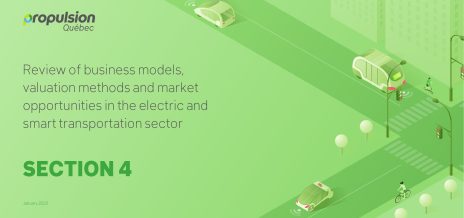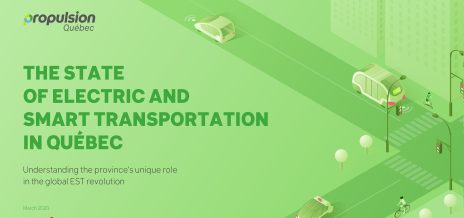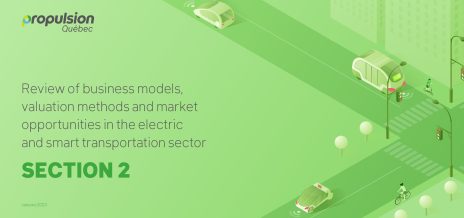Charge+
The Charging Infrastructure Financing Program

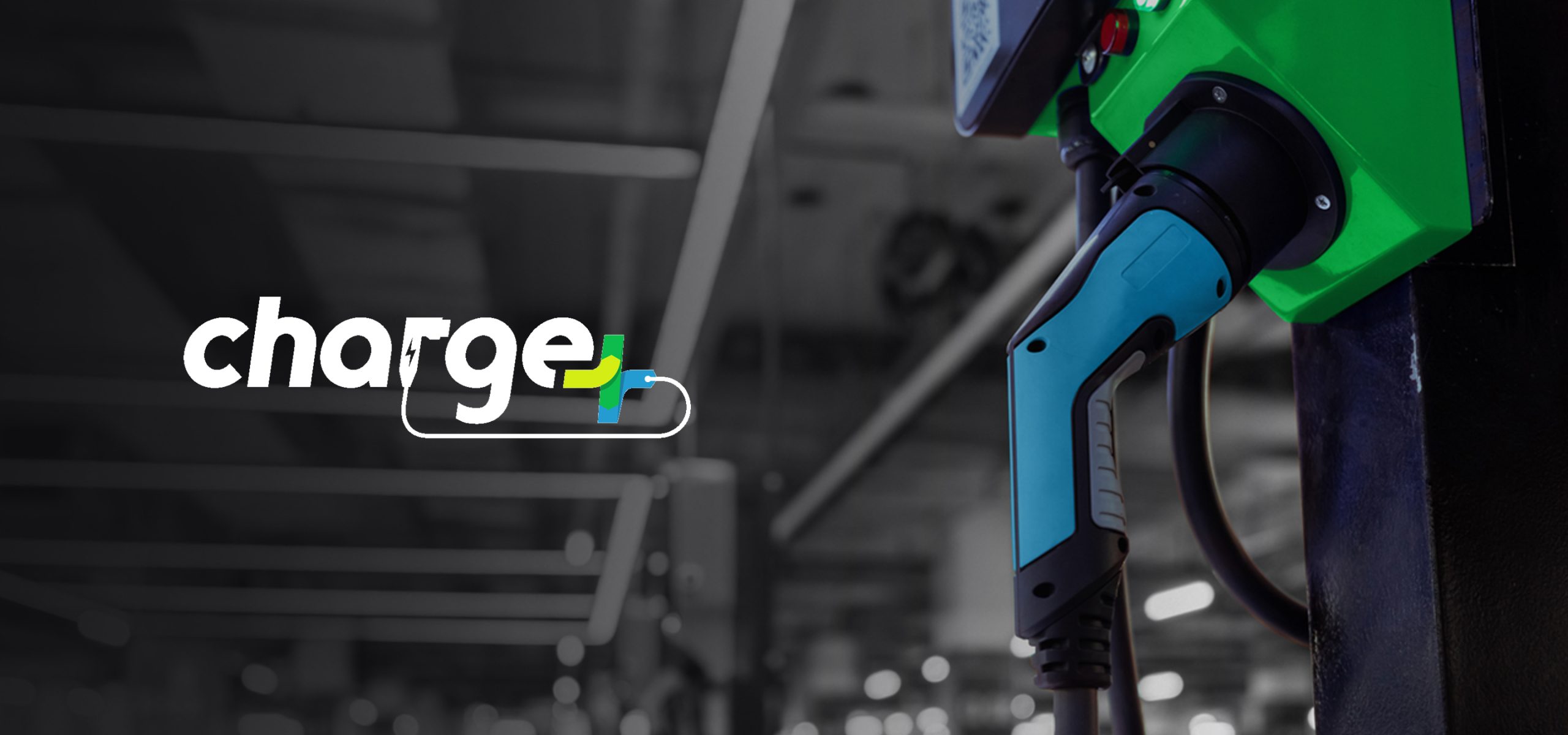
Are you interested in installing charging stations?
FINANCE CHARGING INFRASTRUCTURE FOR YOUR FLEET, EMPLOYEES AND CUSTOMERS.
Description and objectives
Propulsion Québec, with funding from Natural Resources Canada, is launching the Charge+ Charging Infrastructure Financing Program for the vehicle fleets, workplaces and public spaces of members and major partners in the electric and smart transportation (EST) cluster private sector and Quebec organizations in the public sector.
At a time when the accessibility, costs and availability of charging infrastructure have been singled out as obstacles to the electrification of vehicle fleets, Propulsion Québec is launching the Charge+ program to support companies in the Electric and Smart Transportation (EST) ecosystem and Québec public sector organizations in their transition to electrification and to promote zero-emission vehicles by financing a strategic deployment of the charging infrastructure network. Through this program, the EST cluster is accelerating and tangibly supporting the energy, ecological and sustainable transition of the Quebec economy.
Charge+ funds the acquisition and installation of Level 2 charging stations and fast-charing stations up to a maximum of $100,000 per application. This program will let you:
- Acquire and install charging infrastructure at a low cost.
- Promote the deployment and transition of your electric vehicle fleet.
- Provide a charging solution to your employees and customers.
- Make tangible contributions to GHG reduction and climate change objectives.
Who is the program for?
The Charge+ program supports and partially finances the acquisition and installation of charging infrastructure for vehicle fleets, workplaces and public spaces. It is intended for:
- member or major private-sector partners of Propulsion Québec (for-profit or not-for-profit);
- public-sector partners, provincial, regional or municipal government agencies and their public institutions, agencies and government corporations in Quebec. However, federal organizations, Crown corporations and federal agencies are excluded and cannot benefit from this program.
Organizations may submit more than one application for consideration, but each notice of interest must not exceed $100,000 in requested funding.
Criteria and eligible expenses
Organizations must meet the following criteria to receive funding from this program:
For private sector organizations (for-profit or not-for-profit):
- be a member or major partner of Propulsion Québec
For the public sector, only the following organizations are accepted:
- be a collaborating organization that contributes to the transition of vehicle fleets, promotes experimentation and innovation and/or collaborates on a project or activity related to the electrification of transport.
- provincial, regional or municipal government agencies and their public institutions, agencies and government corporations (including public service providers) in Quebec.
***Please note that federal organizations, Crown corporations and federal agencies are excluded from participating in this program.****
Applications must also meet the following criteria:
For infrastructure/charging stations:
- Be a permanent installation consisting of new and purchased (not leased) equipment
- Be a new installation or extension of existing infrastructure (not a replacement of existing infrastructure)
- The work carried out must comply with all local codes and by-laws in force
- Have confirmed access to the site where the infrastructure will be installed
- Charging infrastructure for the general public must be installed in a parking space clearly identified for charging electric vehicles
- Be able to communicate with other charging stations and/or a server or the cloud via a mobile/wireless signal or via a connected vehicle, using software to manage usage and/or other capabilities such as real-time usage status of charging stations
- Be commercially available and accredited for use in Canada and include one or more of the following types of connectors:
- Level 2 station: a standard SAE J1772 plug-in head or a proprietary-type connector
- DC fast-charge station: including one or more of the following types of charging connectors: CHAdeMO, SAE J1772 Combo (CCS) or a proprietary-type connector
- The station is a product manufactured in countries that have negotiated free trade agreements with Canada. A complete list of free trade agreements is available here. To be eligible for funding, the producing country must have a free trade agreement with Canada that is “in force”.
Available funding
The program will cover up to 50% of total project costs to the maximum amounts shown in the table below:
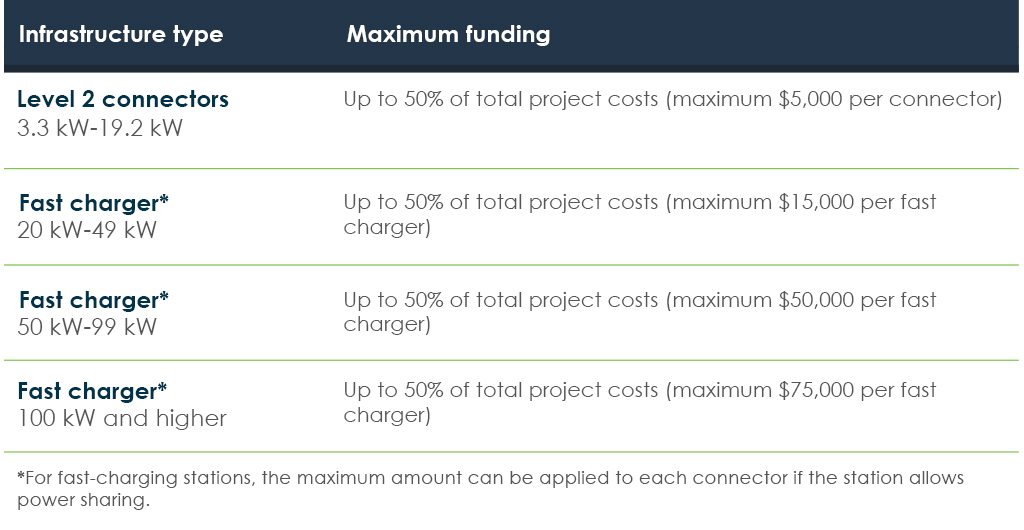
Eligible expenses
- Salaries and benefits
- Professional services (e.g., scientific, technical, management, external service delivery, engineering, construction, installation, testing and commissioning of equipment, training, marketing, data collection, logistics, maintenance, printing, distribution, verification and evaluation)
- Capital assets, including IT equipment and other equipment or infrastructure
- Leasing/rental costs
- Environmental assessment fees
Ineligible expenses
Expenses not eligible for reimbursement under this program include:
- In-kind support
- Land costs (e.g., acquisition of ownership or property rights)
- Legal costs
- Current operating costs (e.g., electricity consumption, operating, maintenance, network and subscription costs, etc.)
- Costs incurred outside the eligible expense period
Assistance stacking
Financial assistance provided by Propulsion Québec through Natural Resources Canada can be combined with complementary programs offered by other government departments or agencies and by energy distributors. The cumulative amount of financial assistance received from government departments or agencies, energy distributors and Propulsion Québec for the relevant charging station project shall not exceed 75% of total eligible expenditures, unless the proponent is a provincial, territorial or municipal government. In this case, the assistance stacking limit is 100% of total costs.
Steps involved to finance the acquisition and installation of charging infrastructure with the Charge+ Program
-
Notice of interest
The applicant notifies Propulsion Québec of their interest in the program. Fill the form >>>
-
Identification of needs
The applicant describes the estimated number and types of charging stations and informs Propulsion Québec of their need to be put in contact with charging station suppliers and installers.
-
Planning
The applicant takes the necessary steps to define their project and obtains the bids and quotes needed to carry out the project. As required, Propulsion Québec will put the applicant in touch with potential suppliers.
-
Prequalification
The applicant submits a formal application including all submissions allowing Propulsion Québec to make the necessary checks and ensure that the project meets all the criteria. At the end of the process, notification is issued to confirm the acceptability of the proponent’s project.
-
Application evaluation and confirmation
Propulsion Québec issues notification. In the case of a negative decision, an applicant who still wishes to qualify must meet the requirements specified in the notification and submit another prequalification application.
-
Signature of the agreement
On signing the customized agreement, Propulsion Québec approves and qualifies the project and the applicant accepts the conditions.
-
Execution of work
The applicant carries out the work and provides Propulsion Québec with regular progress updates.
-
Claim
The applicant completes the form and includes all of the necessary supporting documents to enable Propulsion Québec to process the claim request and produce a quarterly report, in accordance with the prescribed schedule.
-
Receipt of grant
Propulsion Québec issues the payment to the applicant in accordance with the signed agreement.
Key dates
Reimbursements will be issued every 3 months covering the following periods:
- Time period 1 : April 1 to June 30
- Time period 2 : July 1 to September 30
- Time period 3 : October 1 to December 31
- Time period 4 : January 1 to March 31
Claims will be processed once the acquisition and installation work has been completed and we have received all the supporting documents.
Expenses eligible as of: February 7, 2022
End of program: December 31, 2026
Key definitions
Vehicle fleets
The program supports the installation of infrastructure for electric road vehicles in corporate fleets. Fleets must consist of multiple light-duty vehicles and be managed by the same owner or manager.
Workplace
The workplace is defined as a place where employees perform their duties. The charging infrastructure should be used primarily by employees. Note that charging infrastructure facilities at a private residence, even if a business is registered at the same address, are not included in this category.
Public spaces
These include parking areas for public use (e.g., visitor parking). A single station may have a secondary use and be available for use by the general public and employees.
Are you a Québec municipality looking to provide more public electric charging stations?
You could apply to the Hydro-Québec grant program for the purchase and installation of charging stations on the curb and in municipal parking lots. For more information, visit the Web page of the program.
For more information

Sara Pellerin
Director, Programs | Director, Membership Services by interim
Continue reading on the subject

FINANCING | $50 million from Finalta Capital in non-dilutive financing dedicated to the Electric and Smart Transportation sector
Fast growing, innovative companies from the electric and smart transportation (EST) sector in Québec take advantage of the $50 million in funding dedicated to the EST ecosystem by Finalta Capital, one of Canada’s largest funds specialized in non-dilutive tax credit and government grant financing, announced in March 2023 as part of the Impulsion conference, the International EST Summit organized by Propulsion Québec.
Read more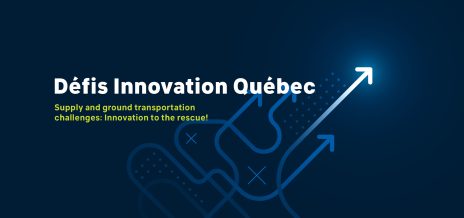
Défis Innovation Québec
The Défis innovation Québec program funds experimental projects by Québec companies with ties to government departments and public bodies in amounts up to $500,000 each.
Read more
The Next Budget Must Ensure Competitiveness of the EST Industry
Montreal, August 3, 2023 — Propulsion Québec, the cluster for Electric and Smart Transportation (EST), submits its priorities in advance of the 2024 federal budget as part of the federal pre-budget consultations process. The global race to attract champions in the electrification sector has begun and Canada must capitalize its strengths to stay competitive.
Read more
Transition+
Tracer la voie aux pionniers québécois pour la transition électrique des transports
Read more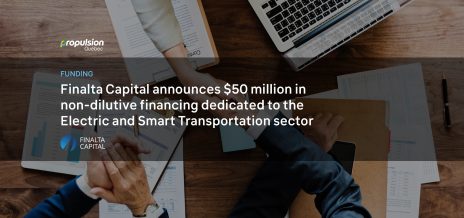
FINANCING | Finalta Capital announces $50 million in non-dilutive financing dedicated to the Electric and Smart Transportation sector
Montreal, March 15, 2023 – As part of the Impulsion conference, the International Electric and Smart Transportation Summit organized by Propulsion Québec, Finalta Capital, one of Canada’s largest funds specialized in non-dilutive tax credit and government grant financing, announces $50 million in funding dedicated to the electric and smart transportation (EST) ecosystem. An enhanced funding […]
Read more
PORTRAIT & BUSINESS OPPORTUNITIES OF THE EST SECTOR IN QUÉBEC | A Status Report on EST and Two Guides to Support Investment in Québec
The Funding group project of Propulsion Québec, the cluster for Electric and Smart Transportation (EST), launched today at IMPULSION, Innovation Edition, the project Portrait & business opportunities of the EST sector in Québec.
Read more
Overview of Québec’s EST Sector & Its Business Opportunities
The completion of the Diagnosis of the Funding Chain in Quebec’s Electric and Smart Transportation (EST) Sector has provided a clear picture of the issues related to financing.
Read more
BUSINESS MODELS AND FINANCING : Attract Investors to the EST Sector
Electric and smart transportation sector (EST) financing is a key element, both for start-ups and well-established organizations. Despite the multitude of economic and environmental opportunities stemming from EST, many investors are unfamiliar with our sector.
Read more
Will industrial strategies chart a new course for the future of Quebec industries?
The Quebec economy—and more broadly the world economy—faces multiple challenges: the climate crisis, supply chain problems, labour shortages, inflation, etc. Quebec has an abundant supply of resources, know-how, and expertise; however, the next points on its agenda should include structuring, developing, and planning industrial activities.
Read more